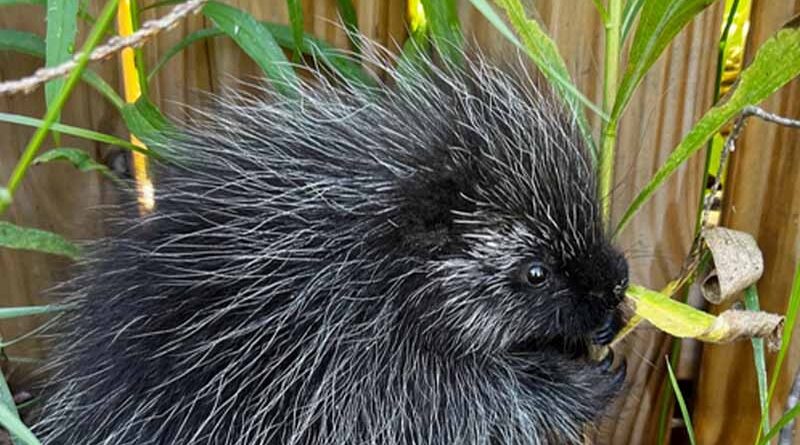Prickly Patients
Kawartha Wildlife Centre
Watch your speed! Porcupines are well adjusted for defense against wild predators but their slow-moving ways make them high risk targets for vehicle collisions. Just this year, we have had three orphaned porcupines, all for the same reason, their mother was killed by a car.
Porcupines are notoriously difficult to raise in captivity and not just because of their quills (though this is an added challenge!) but because they have very sensitive digestive tracts and need an abundance of natural foods to keep their diet and gut flora balanced.
Baby porcupines, called porcupettes, are born precocial, mobile, and fully furred (yes, they ARE born with quills, though the quills are soft at birth and only fully harden after a few days!), but they generally rely on their mothers for the first 4-6 months of their lives. Our first orphan, patient 22-420, arrived in the middle of spring at just a day old. The vulnerable newborn was in critical condition, found beside their deceased mother at the side of the road. Two more orphans arrived later through the year, one in August and one in September, with the same condition. These porcupettes all needed room to climb and explore, and had each other for company during their time in captivity prior to release.
Did you know?
Porcupines have internal reproductive organs, so without an x-ray it is impossible to determine sex. In the case of an injured adult, we would need imaging to tell us if the patient were pregnant, in order to medicate them safely and accordingly. Luckily for orphans, it doesn’t affect their care or how we treat them, so it is always a bit of a mystery!
Kawartha Wildlife Centre is volunteer-run wildlife rehabilitation centre located in Peterborough County in the heart of the Kawarthas. As a charity relying solely on community support and receiving no government funding for care of wildlife, we are in urgent need of financial support to support our patient care and treatments. To support wildlife in need, please consider making a donation: https://www.canadahelps.org/en/dn/33851
Thank you for supporting our work with Ontario’s wildlife!




